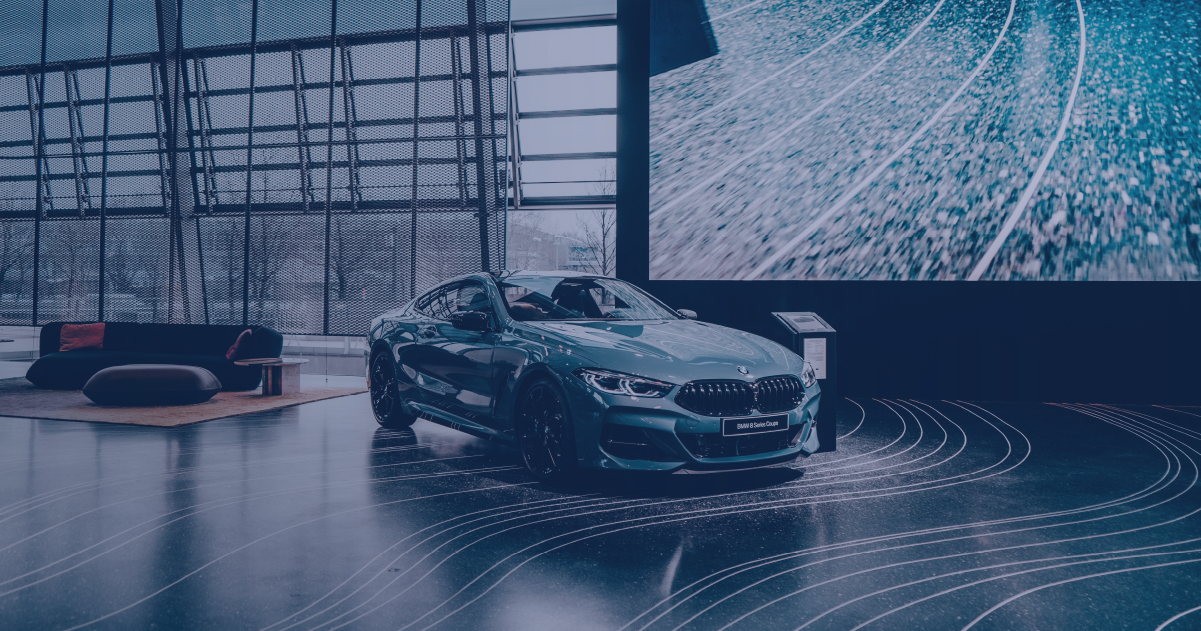The traditional approach to the automobile industry – with automotive manufacturers and car dealers simply selling cars – is slowly going to an end and other strong consumer trends in the automotive industry are gaining momentum. New customer demands paired with cutting-edge technological advances make the driving experience all different – from the very beginning.
New car ownership models, car sharing, electric and autonomous vehicles – along with the use of digital channels and online marketplaces, modern customer engagement tools, and virtual reality showrooms – are only some of the fresh, interesting solutions the automotive sector offers to both business and individual customers.
In this article, we’ll shed light on the ins and outs of digital transformation in the automotive industry. We’ll provide specific examples of automotive retail trends as well as digital tools and technologies that are transforming the automotive retail industry. Read on to find out more.
Table of contents:
- What is digital transformation in the automotive industry?
- Automotive retail trends & better customer experience
- How technology transforms automotive retail? Wrap up
What is digital transformation in the automotive industry?
We are living in a digital golden age, marked by the rise of breakthrough technologies and innovative solutions. This digital transformation can be defined as „the process of using digital technologies to create new – or modify existing – business processes, culture, and customer experiences to meet changing business and market requirements”.
Digital transformation is also at the center of the Fourth Industrial Revolution (also called Industry 4.0), driven by state-of-the-art technologies like artificial intelligence, Big Data, the Internet of Things, cloud computing, 3D printing, robotics, virtual reality, or blockchain. And these technologies are also game-changers in the case of the automotive industry.
They revolutionize it day by day, transforming the way car companies operate – from designing the vehicles to upgrading them and selling them to end-users. Digital transformation is all about experimenting, innovating, and doing things differently and more efficiently, so the outcomes of these actions are often truly mind-blowing.
Digital transformation in the automotive industry is affecting areas such as personalized experience, customer loyalty, and automotive customer journey. New customer trends and automotive retail trends occur, including virtual reality showrooms, digital car dealerships, connectivity, ride sharing, electric vehicles, or the use of biometric seats (that can improve both the driver’s experience and performance).
Automotive retail trends & better customer experience
What drives customers’ buying decisions today is the ability to choose a truly tailor-made solution. Automotive customer experience and vehicle performance are in the limelight, and feature upgrades are vital, too.
The most important consumer trends in the automotive industry include:
Trend 1: Connectivity
Modern, software-driven vehicles are called „smartphones on wheels” and connected cars – that is, ones with an Internet connection – certainly belong to this category. This connectivity – or being a Wi-Fi hotspot – lets such a vehicle communicate with other connected cars (e.g., about traffic, or accidents), and with road infrastructure, including radars, signs, or cameras.
Trend 2: Online car purchasing
As virtually all aspects of our lives have been moved to the Internet during the COVID-19 pandemic, the shift towards convenient, hassle-free online retail is also visible in the automotive industry. The sale offers – that cover both new and used cars – are presented by many specialized platforms, services, and online car marketplaces. The process, despite some risks involved, seems to be, quite surprisingly, a highly satisfying experience for many clients.
Trend 3: Not owning a vehicle anymore
Shared transport is a major trend that is to relieve planet Earth, but also the home budgets of many people, especially those living in big cities. Shared mobility takes two main forms:
- carsharing (of one vehicle by multiple users),
- ride-hailing (with fit-for-purpose rides ordered by customers online).
Other strong consumer trends include the use of electric cars, self-driving vehicles, and feature upgrades – all of which require a strong technological backup and innovations.
Customized customer experience in the automotive industry is king, and car manufacturers try hard to meet new, more sophisticated client needs.
These are some of the tech trends in automotive retail that reflect that:
Trend 1: Emerging technologies
Emerging technologies, such as artificial intelligence, machine learning, Big Data, blockchain, and the Internet of Things change the automotive landscape lightning-fast. Some of their important applications include predictive maintenance, VR-based test driving, and in-car Internet. They help enhance quality assurance and road safety (by keeping lanes and preventing collisions), verify supply chains, streamline operations, and increase sales.
Trend 2: Human-Machine Interface
Human-Machine Interface (HMI) is an interface or a dashboard (e.g., a touchscreen) meant for communication with a car and giving it commands by people. Voice-based interaction with a car and getting feedback from it makes operating vehicles easier, more comfortable, and more predictable. This communication is two-way one – as HMI can inform the driver about some important parameters or data, and warn of dangerous conditions.
Trend 3: 3D Printing and modeling
3D technology enhances the automotive industry in many ways. It is useful in preparing 360-degree presentations, 3D maps of the car’s surroundings, 3D product models for checking new car visions, prototypes of particular elements, as well as 3D-printed molds, engines, and spare parts, to name but a few applications.
Automotive transformation – technology solutions by Codete
The automotive revolution is a vital trend that requires powerful advisers – and Codete definitely is the one. Codete’s data science specialists, software engineers, and IT consultants have many years of professional experience in helping automotive companies face digital transformation and make the most of it – in a variety of ways, e.g., by offering audit, consulting, support, maintenance, or automotive software development.
With Codete, startups and established companies alike can bring new products to the market, improve the security of their existing apps, or add some new features to their platforms. A comprehensive set of IT solutions and services is provided – that enhance and support car-making clients’ processes, infrastructure, and analytics systems. Top automotive players on Codete’s client list include BMW, Porsche, and Kia Motors.
Codete advised Kia on how to create an optimal tech stack for digital success, in line with what this vehicle manufacturer is known for – precision and reliability. The project Codete’s specialists were engaged in concerned the functionalities Kia planned to implement in its final product – a web and mobile augmented reality application. The bottom line was successfully building the app designed for Kia Motors’ authorized dealers.
How technology transforms automotive retail? Wrap up
During the automotive transformation, traditional car ownership and car sales business models are becoming less and less valid. Changing consumer behavior and new needs, paired with technological breakthroughs, resulted in the growing popularity of things like autonomous vehicles, connected cars, and ride-hailing services.
The paradigm shift, with increasing automation and Artificial Intelligence use, poses some new challenges, like charging infrastructure or data privacy concerns. In a globalized world, supply chain disruptions may be a vital issue, too, as was the case in the COVID-19 times when global shortages in the automotive semiconductor industry had a significant negative impact on worldwide car sales, as Statista’s data shows.
It also indicates that the automobile market is still far from being recovered, with the number of passenger vehicles sold worldwide estimated to reach only 66.1 million in 2022 after the impressive 74.9 million in 2019. What can attract new clients is technology-driven features, customized retail options, and a superb customer experience it’s worth fighting for.
Running an automotive retail business and want to make the most of the digital transformation? Willing to meet the newest consumer trends and solutions in the modern auto industry? If you dream of digital success in this area, don’t hesitate to contact Codete now.



